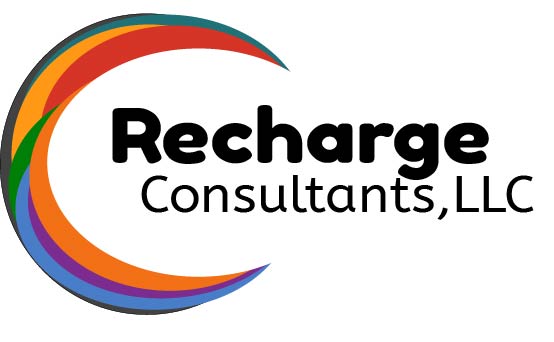Whether starting or seeking to grow your business, a clear and stated purpose is essential. Simon Sinek wrote, “People don’t buy what you do or how you do it; they buy why you do it.” People emotionally connect to the purpose, belief, or cause of your business’s existence.
In his follow-up book, Finding Your Why, Sinek further expounded upon defining a clear and stated why. You explained your business’ “why” it is briefly said within the framework of one sentence.
To (the contribution you make to the lives of others) so that (the impact of your contribution).
That’s it. However, it is a compelling statement. This is your value statement to those seeking to purchase from you and the business community. Your contribution isn’t the products or services you provide. That’s your what. Additionally, it isn’t your show, either.
For example, Recharge Digital Consultant’s why is this.
To
(contribution you make in the lives of others) “assist our small to medium business clients in starting up, establishing and improving core processes, and developing growth.”
so that
(the impact of your contribution) “they can succeed in empowering employees, delivering top-notch customer experiences, and recharging their technological innovation efforts.”
Your why statement should not include your how and what. People don’t connect with your what and how. Again, they connect with your purpose.
After understanding your why, you can identify your how and what to your targeted customers.
Then Dive into HOW
According to Michael Brenner’s article on 21 Marketing Trends, You Need to Know For 2023 with Marketing Insider Group, “For companies to succeed in 2023, they’ll have to think beyond what they’re doing and link everything back to the why of the business as a whole. Your marketing goals and objectives must align with the overall goals of your business.”
Your customers are not concerned with how you conduct your business until something about their experience doesn’t work. That is when customers pay close attention to how you do business. Glaring discrepancies in customer experiences often drive customers to share their negative experiences with others. They often feel an emotional wedge between your purpose and how they were served.
Customers expect that every interaction with your company should be a similar experience. Happy and satisfied customers will share their positive experiences by word of mouth. Your employees are the first and most lasting impression they will have of your business.
The human touch, even through the usage of technology, is what creates an excellent customer experience. People are loyal to those consistently providing exceptional value with minimum friction or stress. Usually, what makes a good customer experience is speed, convenience, consistency, and friendliness.
One in three consumers (32%) say they will walk away from a brand they love after just one bad experience. – Future of Customer Experience (pwc.com)
HOW to Care for Your Customer is Important
The necessity to provide speed, convenience, helpful employees, and friendly service matters significantly to customers. When customers feel appreciated, they are likely to recommend or endorse a company on social media, subscribe to its newsletter, sign up for promotions, and make repeat purchases.
When your employees are engaged, they will be readily available to assist your customers as they are needed. Additionally, they will follow carefully documented processes that will allow them to service your customers consistently. When your employees follow your procedures, they will also be more likely to mitigate risk and reduce noncompliance risk.
Easy-to-follow-for-all policies and procedures reduce customer friction and empower employees, bringing higher customer satisfaction. It also means that occasional forgiveness is needed when mistakes are made.
54% of U.S. consumers say customer experience at most companies needs improvement. – Future of Customer Experience (pwc.com)
Multiple reports have regularly demonstrated that when employees feel empowered at work, it is associated with more robust job performance, job satisfaction, and commitment to the company.
Implementing employee empowerment often means providing them with the tools and resources they need to do their job better. This often means that they can follow processes without friction and then can further your company’s goals.
Learn More
Contact us to identify your why and how to better your company.

